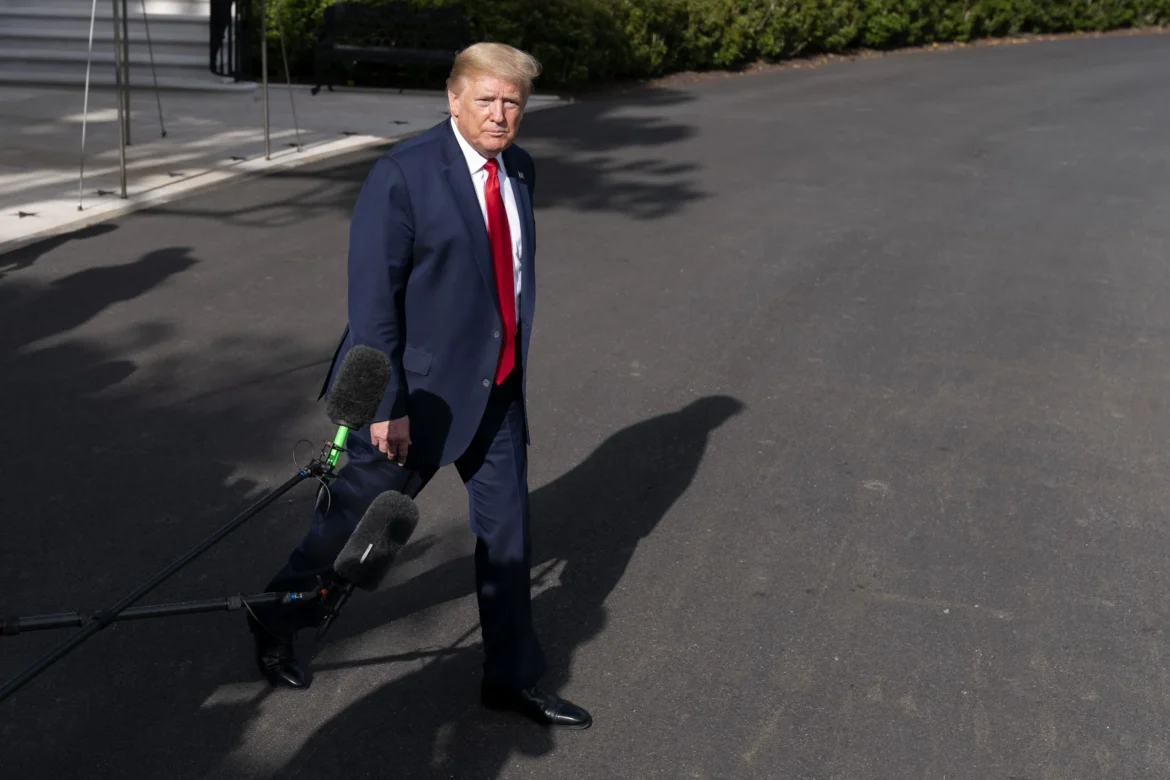On Wednesday, President Donald Trump signed an executive order that could reshape the US immigration landscape by repurposing Guantanamo Bay, a notorious detention center in Cuba, into a holding facility for undocumented immigrants. This announcement comes as part of his broader effort to tackle illegal immigration, a central issue throughout his presidency and one that was heavily discussed during his recent election campaign. Guantanamo Bay, once a facility for detaining those the US considered “illegal enemy combatants,” is now set to house unauthorized migrants, some of whom have criminal backgrounds. Trump has made it clear that he wants to create a system that deals decisively with illegal immigration, ensuring that these individuals are detained away from the United States mainland. He argues that it will make America safer and allow the country to regain control over its borders, dismantling the criminal cartels he blames for exacerbating immigration issues. The executive order, titled “Expanding Migrant Operations Center at Naval Station Guantanamo Bay to Full Capacity,” directs the US Departments of Defense and Homeland Security to ramp up the detention center’s operations, ensuring that it can accommodate 30,000 individuals who are deemed to be the most dangerous, particularly those with criminal records.
This move aligns with Trump’s long-standing promise to expel what he terms “the worst” immigrants from the country. He has often linked undocumented migrants with an increase in crime, though studies have repeatedly shown that immigrants are less likely to commit crimes than their US-born counterparts. This disconnect between rhetoric and research has sparked debates among legal and human rights advocates, who have raised concerns about the human rights violations that could arise from such an action. Despite these concerns, the Trump administration has pushed forward with a legislative framework that underpins these goals, including the recently signed Laken Riley Act. This bill requires the Department of Homeland Security to detain non-US nationals arrested for certain crimes like burglary or shoplifting. The legislation has caused a significant political divide, with some Democrats opposing it on the grounds that it could lead to individuals being detained and deported without proper due process, while others from swing states voted in favor of the bill, likely out of political necessity.
The larger context of this move is rooted in the history of Guantanamo Bay, which has been at the center of controversies for years. The prison, which opened in January 2002, became synonymous with torture and human rights violations. Under the Bush administration, Guantanamo housed hundreds of prisoners captured during the “War on Terror.” The facility came under global scrutiny for its use of torture tactics, including waterboarding and sleep deprivation, which drew harsh criticism from human rights organizations and the international community. Despite numerous calls to close the prison, it remains operational, with only 15 detainees remaining as of early 2023. These detainees were often held for years without charge, and most have been repatriated to their home countries after facing no formal charges.
The implications of repurposing Guantanamo Bay as a detention facility for undocumented immigrants are far-reaching. Legal experts argue that Trump’s plan could face significant challenges, particularly due to the legal rights of immigrants who would be detained in this manner. Unlike enemy combatants, unauthorized immigrants are entitled to the legal protections afforded by the US Constitution. Therefore, it is likely that this plan will be contested in the courts. Human rights advocates, including Clive Stafford Smith, a renowned lawyer who has represented Guantanamo detainees, have pointed out that while Trump may have the legal authority to carry out such a plan, it is unlikely to be effective or just. He suggests that, if implemented, it will be viewed as a political maneuver aimed at appeasing Trump’s base rather than a viable solution to the immigration issue. Critics argue that Guantanamo Bay is emblematic of abuses carried out in the name of national security, and they question whether the same tactics could be used against vulnerable immigrant populations.
Despite the political and legal complexities, the Trump administration has framed this as part of a broader strategy to restore national sovereignty and combat what they consider an “invasion” at the southern border. The Laken Riley Act and the expansion of Guantanamo Bay are both components of a larger ideological stance that treats unauthorized immigration as a threat to national security. However, critics argue that this framing is misleading and that it fails to address the root causes of immigration, such as violence and economic instability in migrants’ home countries.
In light of these developments, questions about the feasibility and morality of Trump’s plan to house unauthorized immigrants at Guantanamo Bay persist. The prison, a symbol of human rights abuses, has become a flashpoint in the ongoing debate over US immigration policy. Legal scholars and human rights organizations are already preparing for potential legal battles, which could delay or prevent the implementation of this controversial proposal. Moreover, there are concerns about the long-term consequences of such a move, both for the immigrants who would be detained there and for the broader international reputation of the United States.
As this issue unfolds, it will undoubtedly continue to be a point of contention in US politics. With the 2024 election cycle approaching, immigration will likely remain a focal point of debate, with Trump’s actions at Guantanamo Bay serving as one of the most divisive aspects of his immigration policy. What remains clear is that this move has sparked a renewed conversation about how the United States deals with undocumented immigration, and it will have significant legal, political, and social ramifications in the months and years to come.
Stay ahead with the latest news on global innovation, leadership, entrepreneurship, business, and tech. Join us on WhatsApp or Telegram for real-time updates. Have a report or article? Send it to report@theinnovationtimes.com. Follow us on X (Twitter), Instagram, LinkedIn, YouTube, Pinterest, and Facebook for more insights and trends.



